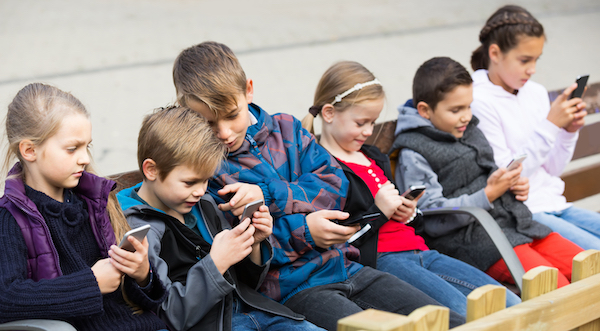Letter: Let's Talk About Social Media's Impact on Mental Health
- Sunday, 21 April 2024 16:55
- Last Updated: Sunday, 21 April 2024 19:00
- Published: Sunday, 21 April 2024 16:55
- Joanne Wallenstein
- Hits: 3915
 (This letter was written by Scarsdale parent, attorney and psychotherapist Lauren Tetenbaum Dorman)
(This letter was written by Scarsdale parent, attorney and psychotherapist Lauren Tetenbaum Dorman)
To the Community:
Over the course of this month so far, we appear to have had an uptick in local conversations about social media's impact on our children's mental health. On April 3, The Atlantic published an article by Scarsdale alumnus Jonathan Haidt calling to "end the phone-based childhood now" because "the environment in which kids grow up today is hostile to human development." A petition to the School Board to implement a phone-free policy in all schools has been circulating and already has dozens of signatories. On April 12, as the Heathcote PTA VP of Technology, I facilitated a group discussion for elementary school parents in which we shared growing concerns and brainstormed about strategies to alleviate them. The following week, the SMS Coordinated Counseling Committee reached out to Middle School parents to encourage best practices for families to build positive, safe, and intentional digital footprints. On April 19, the Wait Until 8th campaign announced that pledges to delay giving kids smartphones were activated (meaning, at least 10 families had signed on) for 5th grade at Greenacres and 1st grade at Fox Meadow; the pledge is already active for some grades at Quaker Ridge as well as in neighboring/peer districts like Ardsley Middle School, Bedford Village Elementary School, Hommocks School, Leffell School, Pelham Middle School, Pound Ridge Elementary School, and Riverdale.
I write to highlight these conversations -- to literally make them front page news. While it feels like more information on the impact of smartphones and social media is available (and to be clear, it's not good: their use is linked to higher rates of anxiety, depression, isolation, bullying, and suicidality and lower rates of self-esteem; please also note the safety concerns related to deepfake nudes, sextortion, and more), it can also feel increasingly overwhelming to find ways to set limits and find solutions. I do not purport to have all the answers to these social dilemmas. My own kids are young (second grade and kindergarten) and while I work as a psychotherapist, I do not treat children in my counseling practice. I do, however, work with young women and fellow mothers who, as adults, typically report feeling worried, sad, and insecure when they (and/or their kids) engage in social media overuse. I can say with certainty that we must be more thoughtful of how we interact with and on the internet.
I believe I can also say with certainty that we as a community want our children to be happy, healthy, inclusive, included, and safe. So let's figure out how to collectively work towards that goal. If the Wait Until 8th pledge resonates with you, sign and share it. If you have concerns about how such boundaries would affect your kid, ask for what your family needs. If your kid is being excluded from a group chat, talk to them, and potentially to the other caregivers or the school. I assure you, you are not alone in feeling apprehensive about strangers communicating with your child via violent video games or feeling pressure to post sexy photos. I guarantee, you are not alone if your kid expresses frustration at being monitored or limited online (and I promise that their feelings will pass). This is not easy, but it doesn't have to be lonely. Let's talk about it.
I recognize that households will have varied responses to this issue; parents may even choose to implement different policies moving forward (for example, just because you gave your eldest a smartphone at 10 does not mean that you have to do the same for your younger child, or just because you previously allowed your child keep their phone in their room overnight does not mean you can never change your mind -- you make the rules and now you have more knowledge that can influence your decisions). Parenting without social media and smartphones is hard enough, and there is absolutely no one right way to parent.
But we must keep talking about these issues, together and (I can't emphasize this enough) with our children. We must continue to share resources and be open-minded. We must collaborate with the educators, mental health professionals, other experts, and peers in our community. We are in this together, and we can and must support each other -- online and, as the kids say, IRL.
Respectfully,
Lauren Tetenbaum Dorman
Lauren Tetenbaum Dorman has been a Scarsdale resident since 2020. She is an active member of the Heathcote Elementary School PTA and Westchester Reform Temple's social impact committee. Through her counseling practice, Lauren specializes in supporting millennial moms and young women. She facilitates psychoeducational groups and workshops to empower postpartum and other women in corporate settings, provides clinical therapy to individuals and couples in New York and Connecticut, and contributes thought leadership on topics like maternal mental health, gender equity, and working parenthood via writing, podcasts, speaking engagements, and other media. Lauren serves on the boards of Postpartum Support International's New York chapter and of Moms for Moms, a nonprofit supporting single mothers and their families in the New York City area.







